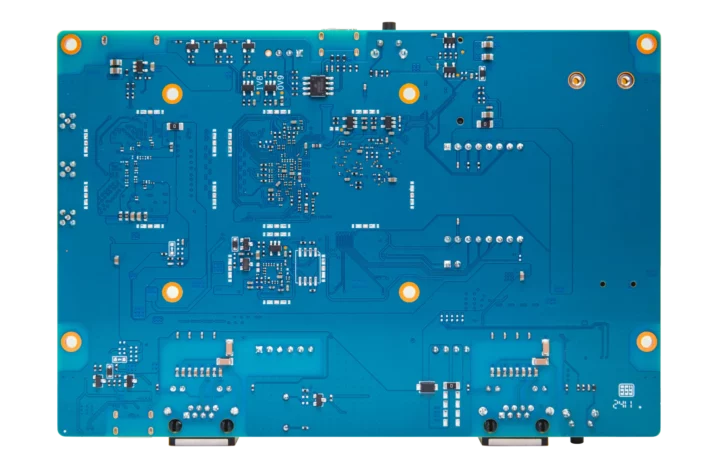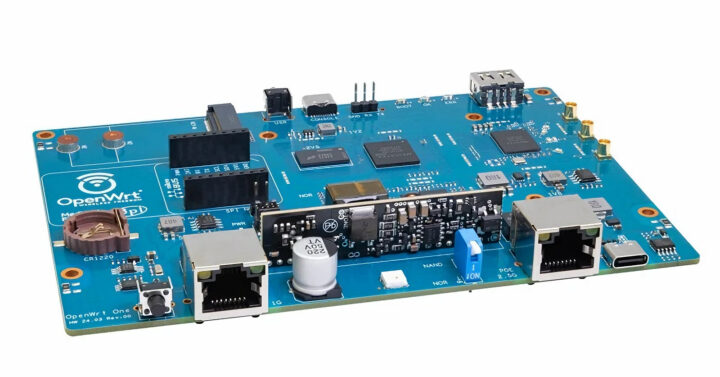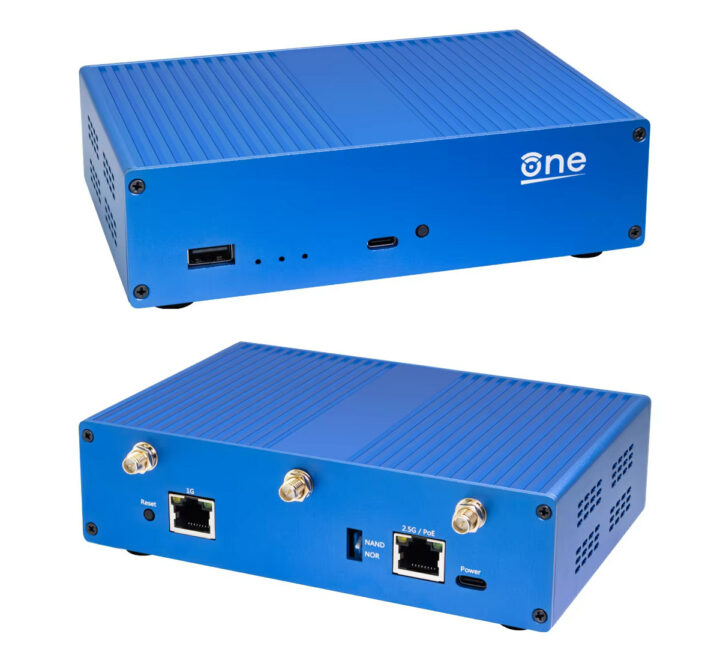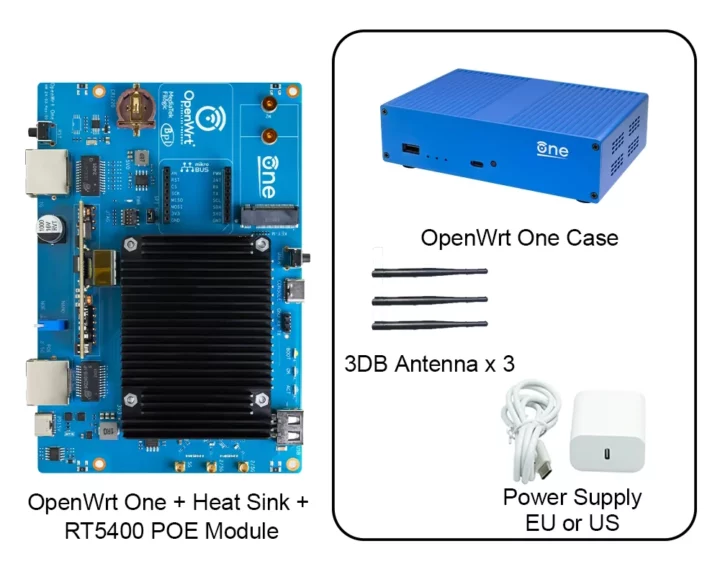The “OpenWrt One/AP-24.XY” is a Filogic 820-based WiFi 6 router board manufactured by Banana Pi whose software is directly managed by OpenWrt developers with assistance from MediaTek.
The router was first announced in January 2024, and developer samples became available sometime in April with some early units auctioned away at the OpenWrt Summit which took place in Cyprus on May 18-19. The good news is that the OpenWrt One is now available to anyone on Aliexpress for $89 including a metal enclosure, a PoE module, three antennas, and a power supply.
Here’s a reminder of the OpenWrt One router specifications:
- SoC – MediaTek MT7981B (Filogic 820) dual-core Cortex-A53 processor @ 1.3 GHz
- System Memory – 1GB DDR4
- Storage
- 128 MB SPI NAND flash for U-boot and Linux
- 4 MB SPI NOR flash for write-protected (by default) recovery bootloader (reflashing can be enabled with a jumper)
- Two types of flash devices are used to make the board almost unbrickable
- M.2 2242/2230 socket for NVMe SSD (PCIe gen 2 x1)
- Networking
- 2.5GbE RJ45 port
- Gigabit Ethernet RJ45 port
- Dual-band WiFI 6 via MediaTek MT7976C (2×2 2.4 GHz + 3×3/2×2 + zero-wait DFS 5Ghz)
- 3x MMCX antenna connectors
- USB
- 1x USB 2.0 Type-A host port
- USB Type-C (device, console) port using Holtek HT42B534-2 UART to USB chip
- Expansion – MikroBUS socket for expansion modules
- Debugging – Console via USB-C port or 3-pin header, 10-pin JTAG/SWD header for main SoC
- Misc
- Reset and User buttons
- Boot select switch: NAND (regular) or NOR (recovery)
- 2x PWM LEDs, 2x Ethernet LED (GPIO driven)
- EM6324 External hardware watchdog
- NXP PCF8563TS (I2C) RTC with battery backup holder for CR1220 coin-cell
- Power Supply
- 12V USB-PD on USB-C port (might have changed to up to 15V)
- 802.3at/af PoE via RT5040 module
- Dimensions – 148 x 100.5 mm compatible with Banana Pi BPI-R4 case design
- Certifications – FCC/EC/RoHS compliance
 The OpenWrt One router is directly supported by the developers, and you’ll already find a snapshot build for the latest OpenWrt image on the website. However, there’s no stable release such as OpenWrt 23.05.5 right now since it’s so new. The documentation is available on Banana Pi and OpenWrt websites with the former focusing on the hardware part.
The OpenWrt One router is directly supported by the developers, and you’ll already find a snapshot build for the latest OpenWrt image on the website. However, there’s no stable release such as OpenWrt 23.05.5 right now since it’s so new. The documentation is available on Banana Pi and OpenWrt websites with the former focusing on the hardware part.
You’ll receive a complete router with a blue metal enclosure. There’s also a large heatsink attached to the board for cooling covering the main components such as the MediaTek Filogic 820 SoC, DDR4, and SPI NAND flash chips.
Update: This article was first published on April 17, 2024 right when the first samples became available, and updated following the public release on Aliexpress.

Jean-Luc started CNX Software in 2010 as a part-time endeavor, before quitting his job as a software engineering manager, and starting to write daily news, and reviews full time later in 2011.
Support CNX Software! Donate via cryptocurrencies, become a Patron on Patreon, or purchase goods on Amazon or Aliexpress








